For Enquiry Dial 90-350-37-886
Oracle DBA Training
With Placement
- Globally Recognized Certificate
- Real Time Live Training sessions
- Corporate Trainers with 10+ Years Industry Experience
- Hands On Exposure on Real Time Projects
- Resume and Interview Preparation
- Get 100% Guaranteed Job Support
- Join for Internship Programs and get exposure to work on Industry Projects
- 3 Months Job support after completion of training
- Both Online and Offline trainings available
Why Ascent Software for Oracle DBA Training ?
- The syllabus of Oracle DBA is updated as per the industry requirement
- Advance topics such as Database and User Security, Backup, Flashback, Storage etc. are covered with live examples
- The training is more of practical than theoretical with one on one mentorship
- We keep limited batch size for full trainer attention
- Rich Study Material & handouts for reference
- Assignments are included for each topic
Who Can Do This Course ?
- Oracle DBA Training can be done by Freshers, Job Seekers and Working Professionals
- No prior knowledge is required to learn Oracle DBA
- The course is strategically designed to suffice the requirement of current industry requirements
- Freshers will find the course easy to understand as every inch of basic knowledge is covered in it
- Experience people who are willing to learn new technologies will find the course very interesting as all topics are elaborated with live examples and real time assignments
Training Methodology

Oracle DBA Training - Syllabus
Best-in-industry, strategically designed Course Content, Projects, Class Sessions to
accomplish the changing requirement of market
- Describe course objectives
Explore the Oracle 10g database architecture
- Explain core DBA tasks and tools
- Plan an Oracle installation
- Use optimal flexible architecture
- Install software with the Oracle Universal Installer (OUI
- Create a database with the Database Configuration Assistant (DBCA)
- Create a database design template with the DBCA
- Generate database creation scripts with the DBCA
- Start and stop the Oracle database and components
- Use Enterprise Manager (EM)
- Access a database with SQL*Plus and iSQL*Plus
- Modify database initialization parameters
- Understand the stages of database startup
- View the Alert log
- Use the Data Dictionary
- Describe table data storage (in blocks)
- Define the purpose of tablespaces and data files
- Understand and utilize Oracle Managed Files (OMF)
- Create and manage tablespaces
- Obtain tablespace information
- Describe the main concepts and functionality of Automatic Storage Management (ASM)
- Create and manage database user accounts
- Authenticate users
- Assign default storage areas (tablespaces)
- Grant and revoke privileges
- Create and manage roles
- Create and manage profiles
- Implement standard password security features
- Control resource usage by users
- Define schema objects and data types
- Create and modify tables
- Define constraints
- View the columns and contents of a table
- Create indexes, views and sequences
- Explain the use of temporary tables
- Use the Data Dictionary
- Manage data through SQL
- Identify and administer PL/SQL Objects
- Describe triggers and triggering events
- Monitor and resolve locking conflicts
- Explain DML and undo data generation
- Monitor and administer undo
- Describe the difference between undo and redo data
- Configure undo retention
- Guarantee undo retention
- Use the undo advisor
- Describe DBA responsibilities for security
- Apply the principal of least privilege
- Enable standard database auditing
- Specify audit options
- Review audit information
- Maintain the audit trail
- Use Enterprise Manager for configuring the Oracle network environment
- Create additional listeners
- Create Net Service aliases
- Configure connect-time failover
- Control the Oracle Net Listener
- Test Oracle Net connectivity
- Identify when to use shared versus dedicated servers
- Use statistics
- Manage the Automatic Workload Repository (AWR)
- Use the Automatic Database Diagnostic Monitor (ADDM)
- Describe advisory framework
- Set alert thresholds
- Use server-generated alerts
- Use automated tasks
- Troubleshoot invalid or unusable objects
- Identify the types of failure that may occur in an Oracle Database
- Describe ways to tune instance recovery
- Identify the importance of checkpoints, redo log files, and archived log files
- Create consistent database backups
- Back your database up without shutting it down
- Create incremental backups
- Automate database backups
- Monitor the flash recovery area
- Recover from loss of a control file
- Recover from loss of a redo log file
- Perform complete recovery following the loss of a data file
- Describe Flashback database
- Restore the table content to a specific point in the past with Flashback Table
- Recover from a dropped table
- View the contents of the database as of any single point in time with Flashback Query
- See versions of a row over time with Flashback Versions Query
- View the transaction history of a row with Flashback Transaction Query
- Describe available ways for moving data
- Create and use directory objects
- Use SQL*Loader to load data from a non-Oracle database (or user files)
- Explain the general architecture of Data Pump
- Use Data Pump Export and Import to move data between Oracle databases
- Use external tables to move data via platform-independent files
- Grid Computing
- Oracle Enterprise Manager 10g Product Controls
- Database Architecture Review
- Recovery Manager Features and Components
- Using a Flash Recovery Area with RMAN
- Configuring RMAN
- Control File Autobackups
- Retention Policies and Channel Allocation
- Using Recovery Manager to connect to a target database in default NOCATALOG mode
- Displaying the current RMAN configuration settings
- Altering the backup retention policy for a database
- RMAN Command Overview
- Parallelization of Backup Sets
- Compressed Backups
- Image Copy
- Whole Database and Incremental Backups
- LIST and REPORT commands
- Enable ARCHIVELOG mode for the database
- Use Recovery Manager
- Recovery of Non-Critical Files
- Creating New Temporary Tablespace
- Recreating Redo Log Files, Index Tablespaces, and Indexes
- Read-Only Tablespace Recovery
- Authentication Methods for Database Administrators
- Loss of Password Authentication File
- Creating a new temporary tablespace
- Altering the default temporary tablespace for a database
- Recovery Steps
- Server and User Managed Recovery commands
- Recovering a Control File Autobackup
- Creating a New Control File
- Incomplete Recovery Overview
- Incomplete Recovery Best Practices
- Simplified Recovery Through RESETLOGS
- Point-in-time recovery using RMAN
- Flashback Database Architecture
- Configuring and Monitoring Flashback Database
- Backing Up the Flash Recovery Area
- Using V$FLASH_RECOVERY_AREA_USAGE
- Flashback Database Considerations
- Using the Flashback Database RMAN interface
- Using Flashback Database EM Interface
- Managing and monitoring Flashback Database operations
- Block Corruption Symptoms: ORA-1578
- DBVERIFY Utility and the ANALYZE command
- Initialization parameter DB_BLOCK_CHECKING
- Segment Metadata Dump and Verification
- Using Flashback for Logical Corruption and using DBMS_REPAIR
- Block Media Recovery
- RMAN BMR Interface
- Dumping and Verifying Segment Metadata
- Internationalization
- ResourceBundle class
- I18N with Date
- I18N with Time
- I18N with Number
- I18N wi
- Oracle Memory Structures
- Automatic Shared Memory Management
- SGA Tuning Principles
- Database Control and Automatic Shared Memory Management
- Behavior of Auto-Tuned and Manual SGA Parameters
- Resizing SGA_TARGET
- PGA Management Resources
- Using the Memory Advisor
- Identifying Tunable Components
- Oracle Wait Events and System Statistics
- Troubleshooting and Tuning Views
- Direct Attach to SGA for Statistic Collection
- Workload Repository
- Advisory Framework
- ADDM Scenarios and Usage Tips
- Using the SQL Tuning and SQL Access Advisor
- Database Storage Structures
- Space Management Overview
- Oracle-Managed Files (OMF)
- Row Chaining and Migrating
- Proactive Tablespace Monitoring
- Managing Resumable Space Allocation
- SYSAUX Tablespace
- Monitoring table and index space usage
- Automatic Undo Management
- Redo Log Files
- Table Types
- Partitioned Tables
- Index-Organized Tables (IOT)
- Managing index space with SQL
- Configure optimal redo log file size
- View “Automatic Tuning of Undo Retention”
- Database Resource Manager Concepts and Configuration
- Creating a New Resource Plan
- Active Session Pool Mechanism
- Maximum Estimated Execution Time
- Creating a Complex Plan
- Administering and Monitoring Resource Manager
- Resource Plan Directives
- Creating Resource Consumer Groups
- Scheduler Concepts
- Creating a Job Class and a Window
- Managing Jobs, Programs, Chains, Events, Schedules, priority
- Viewing and Purging Job Logs
- Creating a program and a schedule
- Creating a job that uses a program and a schedule
- Altering the program and schedule for the job and observing the behavior change of the job
- Monitoring job runs
- Project Implementation
- FAQs & Interview Preparation
To Enquire for Placement Related Queries
CALL 9035037886
Learn At Home With Ascent Software
We provide same level of guidance in Online training as in classroom training. You can enquire anytime to get complete details about the courses. Our career counsellors are well trained in industry required technologies and placements.
#We are rated as "Best Online-Training Provider"
Highlights of Oracle DBA Training
Architecture & Installation
Managing Schema Objects, Flashback
User Security & Database Security
Database Corruption Issuses
Implement Recovery Manager
Managing Memory & Storage
Automating Tasks with Scheduler
Live Projects & Interview Preparation
Meet Our Industry Expert Trainers
# Certified Trainers
# 10+ Years of Industry Experience
# Study Materials Designed On Real Time Problems
# Excellent Communication
# Expert Interview Panel
# Corporate Trainings
# 10+ Years of Industry Experience
# Study Materials Designed On Real Time Problems
# Excellent Communication
# Expert Interview Panel
# Corporate Trainings

Call us: 080-4219-1321 hours: 8am-9pm
- course Duration
The focus is on In-Depth Practical Knowledge with a division of 30% Theory and 70% Practical sessions. Weekdays and weekend batches are available.
- Certified Trainers
We have best working professionals who are certified and have current industry knowledge to cater the needs of students.
- Placements
The program is focused to make a candidate get aware of industry requirement. Classes are followed with interview questions with are very important to crack an interview.
- Course Benefits
Covering up the course a person can easily crack an interview and can work on any real time projects as focus is more on practical training. An Industry Recognised Course Completion Certificate is a part of program.
- Course Highligts
Each topic is covered In-depth with Theory and Practical sessions. Training sessions are covered using Presentations followed by Assignments to enhance the knowledge of students.
- Internship programs
We have separate Internship Programs for Final Year students and Trainee Professionals which includes projects under Certified Trainer guidance . It also includes Internship Completion Certificate.

Internship Programs
- 6 Months Internship for Final - Year Students
- 3 Months Internship for First, Second and Third year students
- 6 Months Internship for BE, B.Tech, BSC and other students
- Internship for Working Professionals
- Internship Program to get hands on experience
- Internship Programe Certificate Issued
Our Hiring Partners For Placements
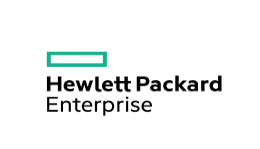

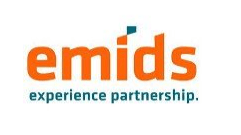


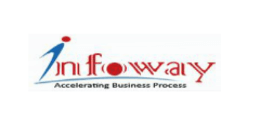
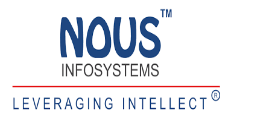

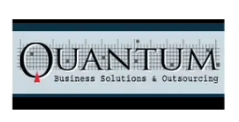
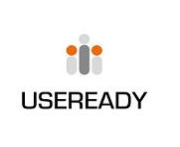
Oracle DBA Training - Batch Schedule
Mon-Fri | 8 AM to 10 AM | 12 AM to 2 PM
Sat- Sun | 8 AM to 10 AM | 12 AM to 2 PM
Mon-Fri | 6 PM to 8 PM | 7 PM to 9 PM
Need Different Timings ?
Enquire for Other Batch Timings
CALL : 9620983072 | 9035037886
Still Hunting For Job?
Ascent Software Certification is Accredited by all companies in the world
Get Certified
And Get Job with our Placement
Assistance Support
To Enquire for Placement Related Queries
CALL 9035037886
Power BI | UI Developer | Angular | Java | Data Science | React JS | Hadoop | Selenium Testing | Security Testing | Digital Marketing | Machine Learning | Microsoft SQL Server | Python| C | C++ | HTML, CSS |…View All Courses
FAQ
Most frequent questions and answers
Ascent Software provides all necessary modes of training
- Classroom Training
- Live Instructor LED Online Training
- One to One training
- Fast Track Training
- Customized Training
- Corporate Training
No worries. We at Ascent Software assures that a student should get full advantage of every session and if a class is missed that there is always a provision of backup class. We have different batches for the same course so the student is free to attend the same topic in any other batch within the stimulated course duration. If a student is unable to undersatnd certain topic then also the same process can be done.
A student can book a slot for free demo class as per his convenient timing. We have both classroom and online demo classes.
After completion of course a student will recieve globally recognized Ascent Software Training Institute Course Completion Certificate.
We accept all kinds of payment options. Cash, Card, NetBanking, Paytm, Google Pay, PhonePe etc.
You can call on 080-42191321 or you can enquire at hr@ascentcourses.com
Working hours
Monday - Saturday : 8:00-19:30 Hrs
(Phone until 20:30 Hrs)
Sunday - 8:00 -14:00
We are here
100 FT Ring Road, BTM 1st Stage, Bangalore-29
Phone: 080-42191321
Mob : 9035037886
Email: hr@ascentcourses.com

